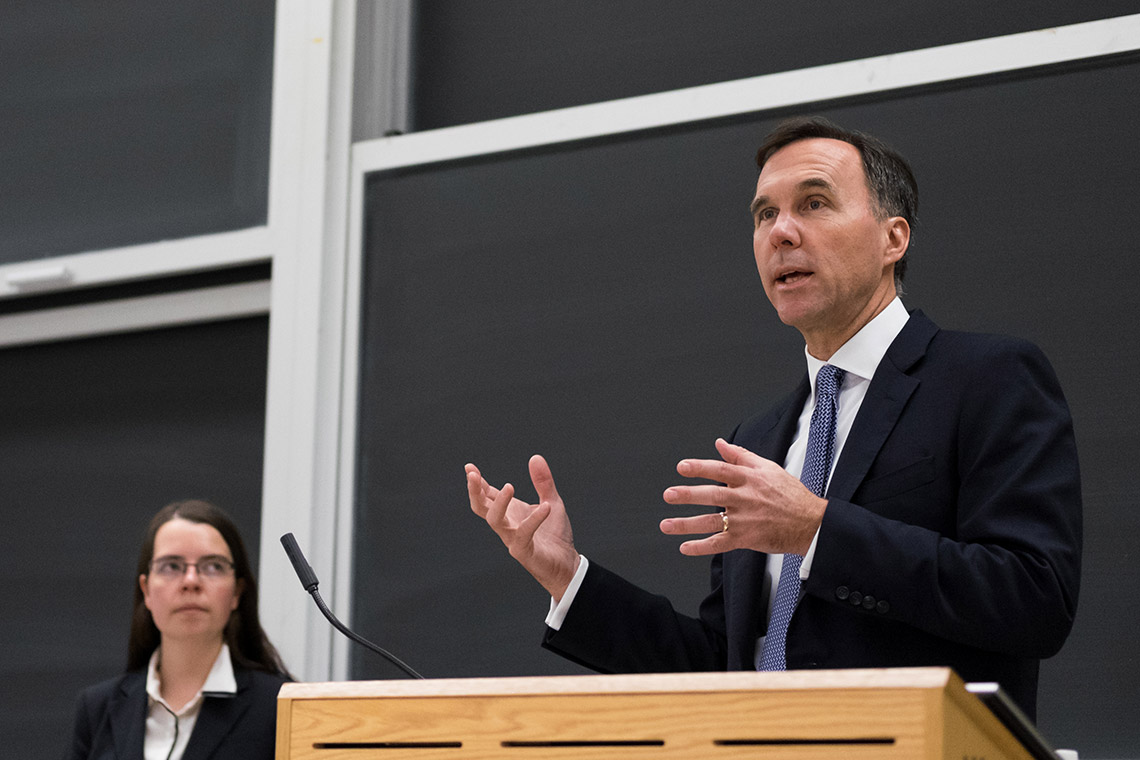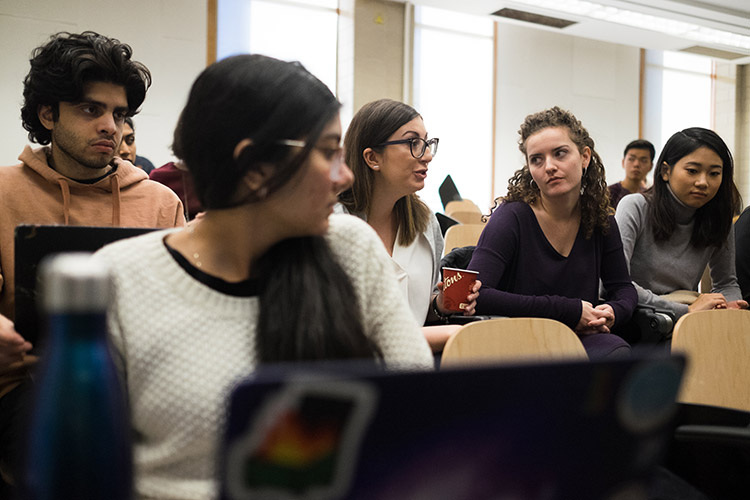

Canada’s Finance Minister, Bill Morneau, speaks to APS510 students
Course Overview
High carbon-emitting fossil fuel-based energy technologies (which meet roughly 80% of the global energy demand) have significant impacts on climate change. As a response to that, strategies like replacing high carbon-emitting technologies with renewable sectors are getting traction; however, social and economic adaptation to those approaches are not easy and prompted major international debates over ‘what’ could be done and ‘how’! The good news is, innovations in renewable energy sectors grew substantially in the last decade and influencing the energy markets toward significant structural reforms. Nonetheless, decarbonization policies and transition from fossil fuel to renewable energy would face significant technological, economic, and political challenges in the coming decades.
In these circumstances, the aim of APS 510 is to understand the social, economic, and environmental challenges of the global energy policies and transition strategies to renewable power generation. Together, we will explore state-of-the-art energy innovations in different economies by startups, non-profit, and government organizations. The course contents will not only focus on technological innovations but also on financial and systemic innovations such as – how M-Kopa is utilizing the ‘Pay-As-You-Go’ model to provide solar energy to rural, off-the-grid homes. Similar in-depth case studies and invited professional talks will deliver real-world insights of renewable and clean energy entrepreneurship, their business models and funding opportunities, challenges, and limitations.
By the end of this course, students are expected to understand the current state of global energy systems and policies, innovations and funding opportunities for clean energy technology and to be able to adopt a creative and critical-thinking mindset to contribute to innovations and organizations in global energy systems.
Intended Audience
This course is primarily targeted toward senior engineering undergraduates and graduate students in the Faculty of Applied Science and Engineering. However, it is open for anyone interested in global energy transition and net-zero policies, sustainable global development, and relevant innovations. Thus, it may be of interest to graduate students from the Munk School of Global Affairs, the Rotman School of Management, and select Arts and Science departments.
Past Student Comments
‘One of the best courses I took in undergrad.’
‘It was very enjoyable to work on our own renewable energy project.’
‘… it definitely broadened my horizon on energy systems and their current state on the global scale.’
Highlights from the Fall 2020 Group Project
Based on the case studies and concepts discussed throughout the semester, student teams were given three projects to choose from: (a) appropriate use of clean energy in agriculture (irrigation), (b) renewable-powered solutions for water disinfection at off-grid locations, and (c) improving energy access in remote/ peri-urban communities through community energy centers. At the end of the semester, they presented their analysis to the rest of the class. Their solution details incorporated affordability and accessibility metrics, operation and maintenance strategies, sustainable financing, and critical thinking needed to build local capacity and skills alongside replicability and scale-up potential.
The most notable work came from Alicia Chen, Katherine Lui, Kevin Yang, Brennan Schommer, and Fumi Shibutani’s team. Their project addressed the lack of access to electricity and food security issues seen in Karnali, the most underdeveloped province in the Mid-west region of Nepal. They designed a solar-wind hybrid community energy center, coupled with a backup generator, to supply portable 187 Wh Li-ion batteries to 63 households based on a pay-as-you-go model. People who cannot afford $10/month for utilities can also be a part of this program by attending agricultural training sessions and employment in the energy center. Overall, in their presentation, the team provided insightful technological details and financial considerations along with well-thought M&E and KPIs.
